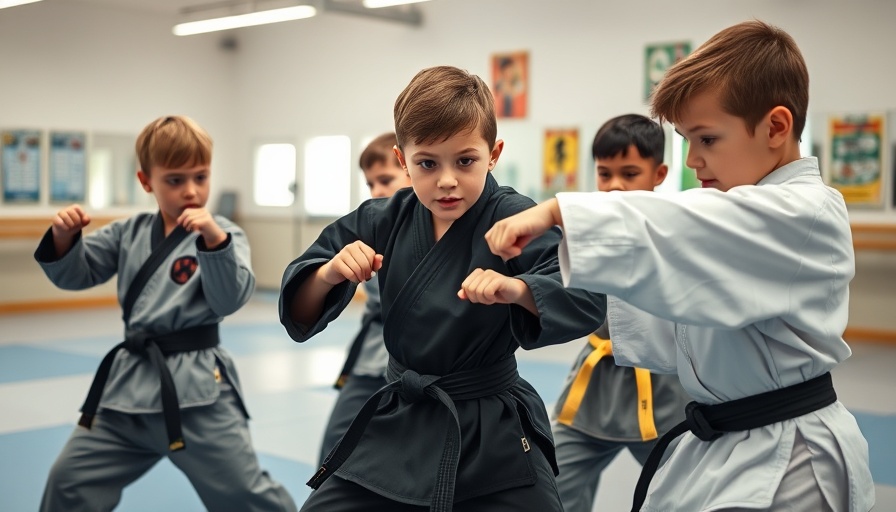
Why Lifelong Training Matters
Martial arts represent more than just a sport—they embody a commitment to ongoing personal growth, discipline, and self-improvement. However, numerous individuals grapple with consistency in their training commitments. Life’s responsibilities, including work, family duties, injuries, and mental fatigue, can easily derail one’s martial arts journey. The true key to enduring success lies not solely in motivation but in cultivating martial arts training as an essential part of your everyday life.
Define Your Why: The Core of Your Commitment
To ignite your lifelong passion for martial arts, begin by discovering your “why.” This deep-rooted motivation should transcend mere transient ambitions. Ask yourself, what drives you? Is it self-defense proficiency? Enhanced physical fitness and health? The enriching mental discipline that martial arts provide? Exploring these questions allows you to anchor your training in meaningful purpose, helping sustain your commitment even when motivation wanes. Document this 'why' and revisit it regularly to keep your motivation alive.
Creating a Structured Training Schedule
One of the primary reasons many martial artists abandon their training is inconsistent attendance. To counter this, treat your training sessions as non-negotiable appointments. Set specific days and time slots for your classes each week, prioritizing these just like work or family commitments. If time is tight on a given day, establish contingency plans—whether that’s engaging in a quick solo drill or practicing shadow sparring. Even a brief 15-30 minute training session can effectively maintain your skills without overwhelming your schedule.
Start Small and Gradually Increase Commitment
Many new practitioners begin their journey with fervor, only to experience burnout when they bite off more than they can chew. Instead, opt for manageable training commitments. Particularly for beginners or those returning to the dojo, focus on attending classes twice a week initially, rather than aiming for five. Gradually enhance both the duration and intensity of your training sessions. By prioritizing progress over perfection, you create a sustainable habit that grows over time. Consistency is key; sometimes just “showing up” is an achievement in itself.
The Importance of a Support System
Training in solitude can be challenging. By surrounding yourself with motivational peers who share your passion, you reinforce accountability and encouragement. Whether it’s a training buddy who can help keep you engaged or joining a group of like-minded martial artists, the power of community elevates your training experience. Consider participating in forums, social media groups, or seminars that connect you with dedicated practitioners. A dynamic martial arts community shifts training from being a chore to an enjoyable lifestyle.
Embrace Variety to Keep Training Exciting
Boredom can often lead to a decline in training commitment. Combat stagnation by diversifying your practice. Experiment with different drills, styles, and even weapon training to keep your sessions fresh and enjoyable. Set mini-goals to master new techniques or enhance your stamina in sparring. Occasionally stepping outside your usual martial art for a class in a different style can provide new insights and skills while keeping your dedication alive.
Real-Life Implications of Lifelong Training
Adopting a lifelong training mentality not only enriches your martial arts journey but also translates to other facets of life. Martial artists achieve recognition for their dedication, which can inspire others to respect the value of discipline. This respect carries over into various aspects of life including personal relationships, academic pursuits, and professional endeavors. Training consistently fosters a mindset that seeks continuous growth, enriching your life in unanticipated ways.
Actionable Insights: How to Cultivate Lifelong Commitment
Consider implementing actionable strategies to make your martial arts training a lifelong habit. Start by jotting down your motivations and keeping track of your training schedule. Focus on small, achievable goals that encourage progress without overwhelming you. Engage actively with others in your dojo and seek opportunities for collaboration and encouragement. Remember to embrace change and variety in your practice as a way to prevent boredom and maintain your engagement.
Conclusion: The Journey Continues
Martial arts is a lifelong journey; it thrives on commitment and community and is forged through discipline. By embedding martial arts training into your daily life, you can cultivate a sustained practice that transforms you physically and mentally. The journey doesn’t have to be solitary; surround yourself with supportive individuals who share your passion. Take these insights to heart, and remember that each step forward—no matter how small—contributes to your growth as a martial artist.
Ready to embark on your lifelong journey in martial arts? Take action today! Whether it’s setting your training schedule, connecting with peers, or exploring new techniques, every small step will help you build the discipline necessary for lifelong success in martial arts training.
 Add Row
Add Row  Add
Add 








Write A Comment